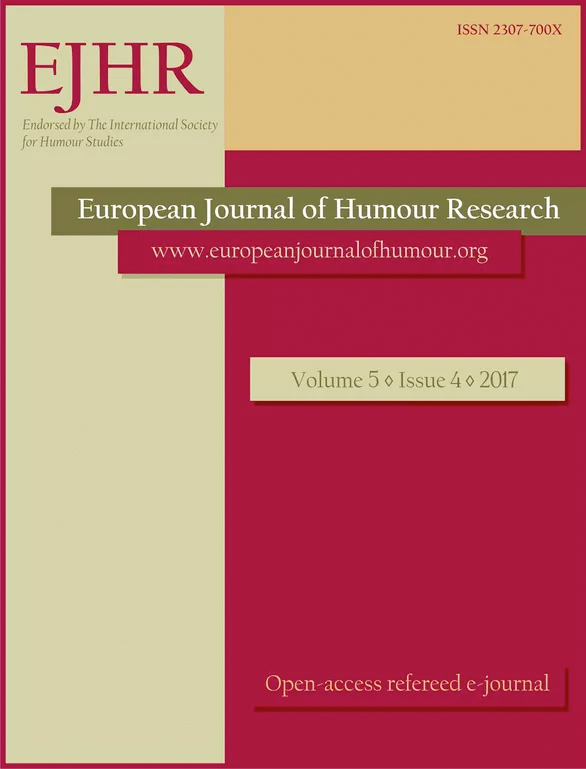Polish highlander jokes and their targets
Polish highlander jokes and their targets
Author(s): Władysław Chłopicki, Dorota BrzozowskaSubject(s): Anthropology, Social Sciences, Language and Literature Studies, Customs / Folklore, Theoretical Linguistics, Applied Linguistics, Communication studies, Sociology, Pragmatics, Sociolinguistics, Cultural Anthropology / Ethnology
Published by: Krakowskie Towarzystwo Popularyzowania Wiedzy o Komunikacji Językowej Tertium
Keywords: highlander; Polish; logical mechanisms; comic script; cleverness; stupidity; wise fool;
Summary/Abstract: The aim of the paper is to identify the characteristic features of jokes about Polish highlanders and analyse them to isolate the comic script of a highlander. This group of jokes is treated as a good illustration of Christie Davies’s ethnic jokes theory concerning canny versus stupid and centre versus periphery oppositions, as well as mind over matter. A particular type of reasoning and the use of regional dialect are distinctive features of the joke targets that make it possible to perceive these jokes as a culturally specific phenomenon. The head shepherd (called baca) is the key character of the cycle. He is a very down-to-earth person, who is proud of his practical wisdom and has a very relaxed attitude to life—a wise fool in some jokes, thus even resembling Good Soldier Švejk in some respects. His lifestyle is usually contrasted with that of ceper—a town dweller, coming to the highlands as a tourist—treated as a kind of intruder who asks stupid questions and does not know how to appreciate life and what really matters in it. The jokes about highlanders are analysed within the paradigm of General Theory of Verbal Humour, and particularly its reasoning and reversal Logical Mechanisms. Even though Christie Davies treated the Logical Mechanism with some scepticism, claiming it is of no use in the GTVH (Davies 2004, 2011b), he would not probably mind the logic of highlanders’ utterances and behaviour being analysed. We believe he may even have enjoyed that.
Journal: The European Journal of Humour Research
- Issue Year: 5/2017
- Issue No: 4
- Page Range: 67-84
- Page Count: 18
- Language: English

